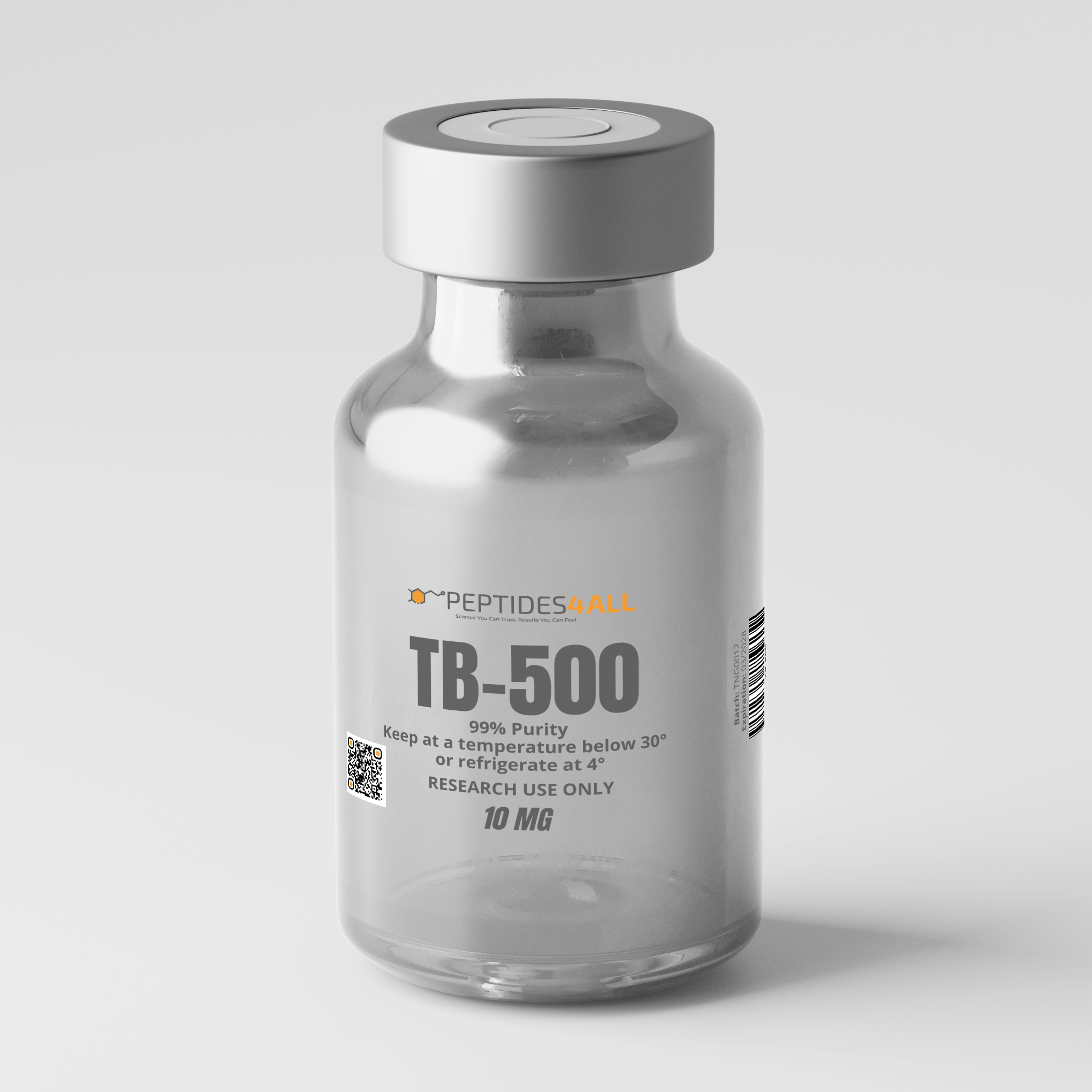Sequence: Ac-Leu-Lys-Lys-Thr-Glu-Thr-Gln (Active Fragment)
Format: Actin-Sequestering Peptide
Chemical Description
TB-500 is a synthetic N-acetylated heptapeptide that replicates the actin-binding region of Thymosin Beta-4. Biochemically, it functions as an actin-sequestering molecule, maintaining a pool of monomeric G-actin in the cytoplasm. This interaction is critical for the rapid polymerization of actin filaments (F-actin) required for cytoskeletal reorganization. Research focuses on its role in facilitating cell motility and tissue morphogenesis markers in culture models.
Research Applications
This compound is strictly for laboratory research use in the study of:
- Cytoskeletal Organization: Investigation of actin polymerization rates and filament stability in non-muscle and muscle cell lines.
- Cell Migration Kinetics: In vitro analysis of endothelial and keratinocyte motility using "scratch closure" assays to model reparative signaling.
- Angiogenic Markers: Research into the upregulation of Vascular Endothelial Growth Factor (VEGF) and tube formation in Human Umbilical Vein Endothelial Cells (HUVEC).
Technical Specifications
- Molecular Formula: C38H68N10O14
- Molecular Weight: 889.01 g/mol
- Purity: >99% (determined by HPLC)
- Appearance: Lyophilized White Powder
- Format: 10mg Vial
Presentation & Handling
- Form: Supplied as lyophilized peptide in sterile vial.
- Reconstitution: Use bacteriostatic water or 2% procaine; swirl gently (do not shake vigorously).
- Storage: Store at –20 °C, protected from light and moisture. After reconstitution, use according to research protocols and handle under sterile conditions.
Disclaimer: For Research Purposes Only
This content is provided strictly for laboratory research purposes and does not constitute an endorsement or recommendation for any non-laboratory application. The information provided regarding specific peptides is for educational and informational purposes only and must not be construed as medical, clinical, or legal guidance, nor as an encouragement for use in humans or animals.
Peptides described here are solely for use in structured scientific study by qualified researchers. We advise consulting with laboratory safety officers or research experts prior to handling these materials. The expectation of responsible, ethical utilization of this information for legitimate investigative and scholarly objectives is paramount. This notice governs all content on this site.
